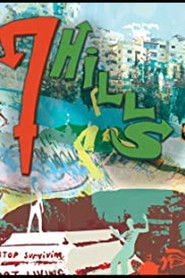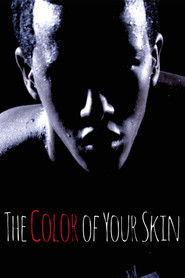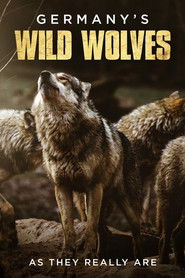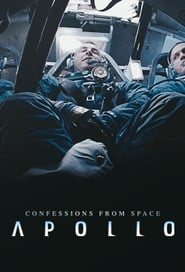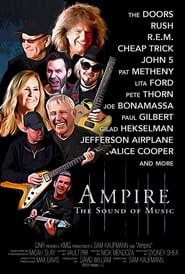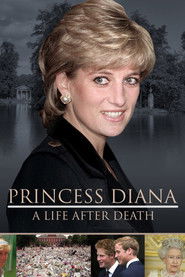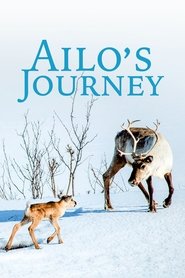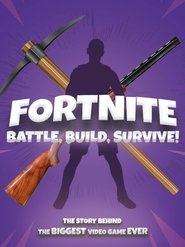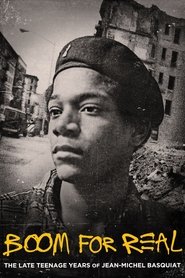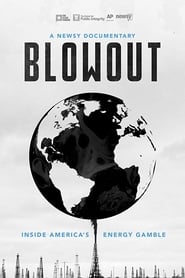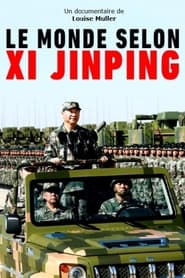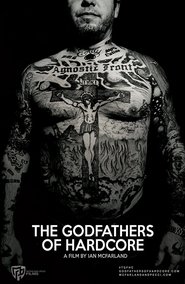New Documentary Movies on Tubi TV - Page 158
-
7 Hills
2019
7 Hills
2019
Children's laughter and the sound of skateboards rolling have replaced explosions and screaming. Witness how the war torn Middle East acts as a backdrop to this amazing story of human survival. -
Band vs Brand
2019
Band vs Brand
2019
A documentary film focusing on the current state of the music business and on how "the brand" of a rock group, in many cases, has more power than the band members themselves. -
The Color of Your Skin
2019
star 10Despite the perceived progress the world has made over the years, it's become increasingly clear that racism continues to run through our culture. This is abundantly apparent on the streets of London. This difficult documentary explores racism in today's climate through stories from people of various races. -
Germany's Wild Wolves - As They Really Are
2019
star 8Wolves – some see in them predatory beasts, others romanticize them as mythical creatures. But does their fabled competitive hierarchy also exist in the wild? Over a period of three years, our filmmaker obtained unique footage of a family of wild wolves as has never been seen before in Europe. This is the first documentary about wild wolves in Germany shot exclusively in the wild; it shows how similar the social structures of humans and wolves are and dispels myths about a fascinating wild animal. -
Our Quinceañera
2019
Our Quinceañera
2019
A high school principal in a small town in Texas hosts a yearly Quinceañera for students that can't afford it. The entire border town gets together to teach these girls that with the power of community any dream can come true. -
Smart Drugs
2019
Smart Drugs
2019
If popping a pill could make you smarter and increase your memory would you take it? In this cinematic POV documentary Nik Badminton travels to Silicon Valley and immerses himself in the real world of bio-hacking and smart drugs as depicted by Hollywood films like Lucy and Limitless. As Nik tries drugs and treatments recommended by people in the business of self-optimization, he begins to question the bio-hacking movement and asks: are we losing sight of what makes us human? -
Confessions from Space: Apollo
2019
Heroes of the Apollo Missions, Buzz Aldrin, Mike Collins , Charlie Duke and more come together to share insights, experiences, and stories of the greatest adventure mankind has ever undertaken. -
Ampire: The Sound Of Music
2018
Ampire is a 90-minute documentary film which takes a fun look into the evolution of 'Sound': the Amp and the ever changing voice it has given the guitar. Ampire is loaded with laughs, great behind the scenes stories and some little known facts and secrets. The film features artist and members of bands like REM, RUSH, The Doors, Pat Metheny (2018 Lifetime Achievement Award), Joe Bonamassa, Black Eyed Peas, K.D. Lang, Cheap Trick, Rob Zombie, Chris Cornell, Lynyrd Skynyrd, Gilad Hekselman, Peter Bernstein, Aerosmith, Lita Ford, Alice Cooper, Frank Sinatra and Elvis Presley's bands. -
Family of Fear
2018
Family of Fear
2018
Family of Fear follows an eclectic group of artists, actors, and all around spooks as they come together to make Arx Mortis in Killen, Alabama one of the scariest attractions in the country. They don't do it for money, they do it for scares, and for support and love. Many of the spooks have suffered from bullying, depression, dysfunctional family, and being treated as outcasts. The haunt is their home and the other spooks are their family. Rather than do other "bad things" they take out their aggressions scaring patrons every Halloween and they build each other upper, laugh, cry, and scare as a haunt family. It's scary, funny, and shocking. Join the family of fear. -
Temple of Art
2018
Temple of Art
2018
A documentary that explores what it means to be an artist and why it's important to pursue your passion- even in the face of failure. -
101 Seconds
2018
101 Seconds
2018
star 6101 Seconds follows two families as they join the gun control movement after members of their families are killed in a mall. -
Princess Diana: A Life After Death
2018
A powerful summary of Princess Diana's historical, political and social legacy. -
A Reindeer's Journey
2018
A Reindeer's Journey
2018
star 6.4Narrated by Golden Globe winner, Donald Sutherland, this is the incredible story of Ailo, the little reindeer. This uplifting tale follows the journey of baby Ailo as he navigates his first year of life in the snowy landscapes of a picturesque Lapland. Frail and vulnerable, Ailo must learn to walk, run, leap and hide to ensure he survives the long, treacherous journey with the herd. Ailo’s Journey is an inspirational story, in which a bleak wilderness is warmed by a mother’s endless love as she watches over Ailo in his incredible adventures with other creatures of the Arctic. -
U455 The Mystery of the Lost Submarine
2018
In Summer 2008, a mysterious submarine, German U-boat U-455 is discovered off the coast of Italy at 120 meters deep. For Lorenzo del Veneziano, an underwater marine archeologist, it's an amazing sight. The U-boat is intact! It stands almost vertically at the bottom of the sea, it's hull stuck in the sediment. What is the story of this ship? The history of U-455 & cause of the sinking are revealed. -
Fortnite: Battle, Build, Survive!
2018
star 10With over 125 million active players around the globe, Fortnite has taken the world by storm. So grab your pickaxe, jump out of the battle bus and join us on the battlefield as we explore one of the biggest games the world has ever seen. -
Boom for Real: The Late Teenage Years of Jean-Michel Basquiat
2018
star 6.9Exploring the pre-fame years of the celebrated American artist Jean-Michel Basquiat, and how New York City, its people, and tectonically shifting arts culture of the late 1970s and '80s shaped his vision. -
Blowout: Inside America's Energy Gamble
2018
star 7Investigative journalists, scientists, and citizens trace the fallout of a new American fossil fuel boom. From the oil fields of West Texas to tanker traffic busting the Panama Canal at its seams to an energy revolution in Asia, "Blowout" takes a deep dive into American energy's global impacts on profits, public health, and climate change. -
The World According to Xi Jinping
2018
star 7.8Under the leadership of Xi Jinping, China is on its way to becoming the leading world power of the 21st century. What goals is the mysterious autocrat, who was deeply influenced by Maoism in his youth, pursuing? What drives him? In terms of domestic policy, Xi is striving for the "perfect dictatorship"; in terms of foreign policy, he wants to rewrite the international rules. -
JonBenet's Tricycle
2018
JonBenet's Tricycle
2018
A unique individual who collects almost everything reveals some of the darker things he has acquired, including JonBenet Ramsey's Tricycle. An investigation of pop culture, media, tragedy and the items we possess. -
The Godfathers of Hardcore
2018
star 6.7Documentary following Roger Miret and Vinnie Stigma of the band, Agnostic Front who played a key role in defining, shaping and establishing the sound and cultural code of conduct for the still-thriving movement. Unlike the dozens of bands that have come and gone, Agnostic Front is still going strong.
 Netflix
Netflix
 Amazon Prime Video
Amazon Prime Video
 Apple iTunes
Apple iTunes
 Apple TV Plus
Apple TV Plus
 Disney Plus
Disney Plus
 Google Play Movies
Google Play Movies
 Paramount Plus
Paramount Plus
 Hulu
Hulu
 HBO Max
HBO Max
 YouTube
YouTube
 fuboTV
fuboTV
 Peacock
Peacock
 Peacock Premium
Peacock Premium
 Amazon Video
Amazon Video
 The Roku Channel
The Roku Channel
 AMC+
AMC+
 Kocowa
Kocowa
 Hoopla
Hoopla
 The CW
The CW
 Vudu
Vudu
 Starz
Starz
 Showtime
Showtime
 PBS
PBS
 Pantaflix
Pantaflix
 FXNow
FXNow
 Tubi TV
Tubi TV
 Kanopy
Kanopy
 Comedy Central
Comedy Central
 Crunchyroll
Crunchyroll
 Microsoft Store
Microsoft Store
 Redbox
Redbox
 Sun Nxt
Sun Nxt
 ABC
ABC
 DIRECTV
DIRECTV
 Crackle
Crackle
 Fandor
Fandor
 Plex
Plex
